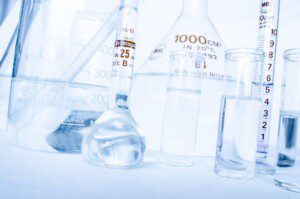A water testing lab plays a crucial role in ensuring the safety and quality of water for various purposes, including drinking, agriculture, industrial processes, and environmental protection. Here are some of the key benefits of a water testing lab:
- Public health protection: The primary benefit of water testing labs is safeguarding public health by identifying potential contaminants in drinking water sources. Regular testing helps detect harmful substances such as bacteria, viruses, heavy metals, pesticides, and chemicals that can cause waterborne diseases or long-term health issues.
- Compliance with regulations: Water testing labs assist government agencies, businesses, and individuals in adhering to water quality standards and regulations. Compliance ensures that water meets the necessary safety standards set by local, national, and international authorities.
- Environmental conservation: Water testing labs help monitor and protect natural water bodies like rivers, lakes, and oceans. Regular testing enables early detection of pollution and facilitates appropriate measures to prevent or mitigate environmental damage.
- Agricultural support: Agriculture relies heavily on water, and the quality of irrigation water directly affects crop health and yield. Testing labs provide essential information about water quality for agricultural purposes, helping farmers make informed decisions about irrigation and nutrient management.
- Industrial processes: Many industries use water as a raw material or for cooling purposes. Ensuring the quality of water used in industrial processes is essential for product quality, operational efficiency, and environmental responsibility.
- Identifying emerging contaminants: Water testing labs are continually updating their testing methods to identify emerging contaminants, including pharmaceuticals, microplastics, and other potential pollutants that may not be covered by traditional testing protocols.
- Research and development: Water testing labs contribute to scientific research and development by providing valuable data on water quality trends, pollution sources, and potential solutions for water treatment and conservation.
- Consumer confidence: Regular testing and certification of water quality enhance consumer confidence in the safety of drinking water. It helps build trust between water suppliers and consumers, encouraging people to use water resources responsibly.
- Outbreak prevention: Early detection of waterborne pathogens and contaminants can prevent disease outbreaks, protecting communities from health crises and reducing the burden on healthcare systems.
- Efficient water management: Water testing labs help stakeholders, including governments and water utilities, make informed decisions about water management, allocation, and conservation based on accurate data about water quality and availability.



